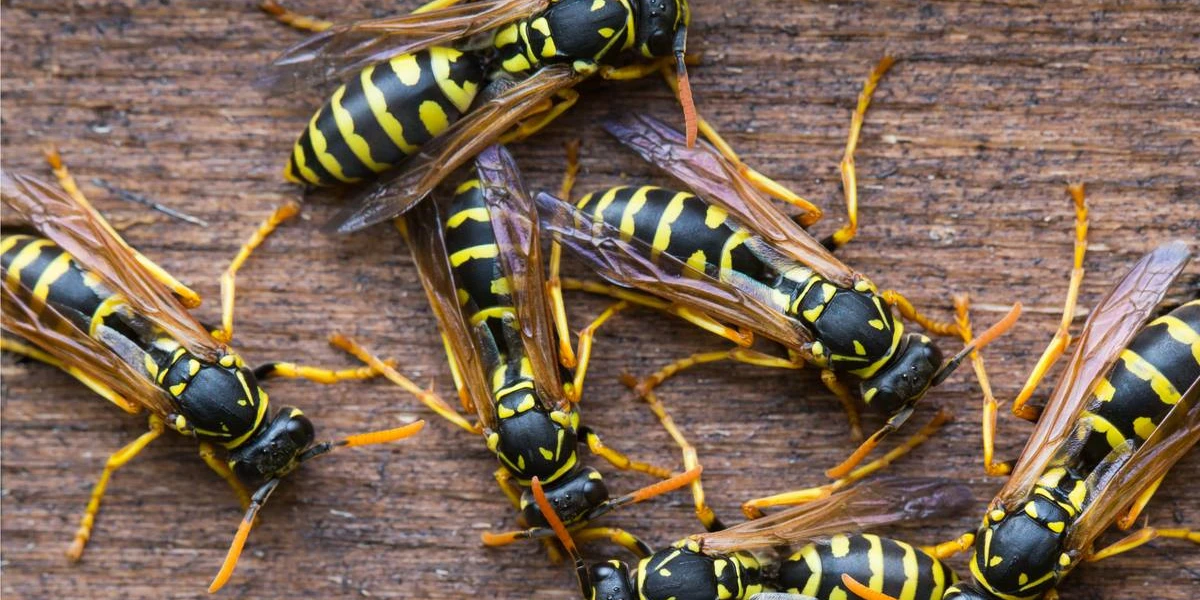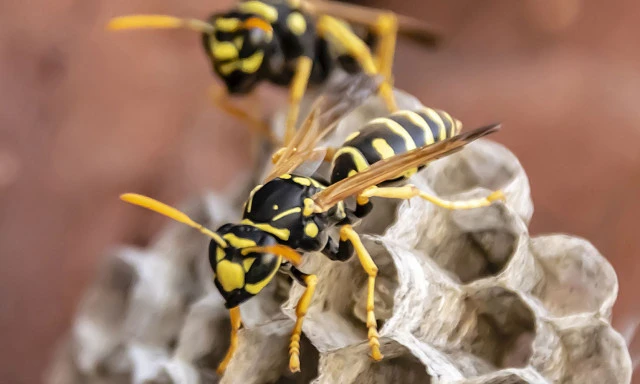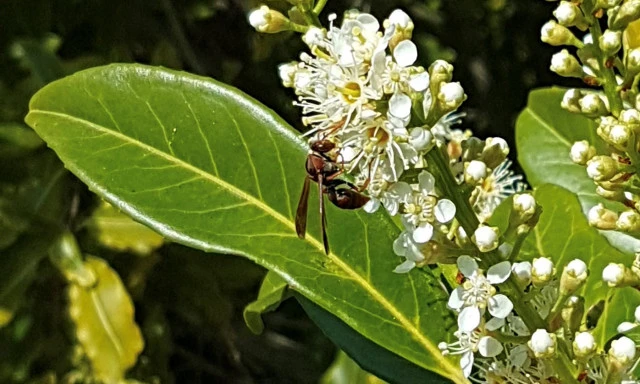Prevent Bites and Stings
New Zealand does not have many stinging and biting bugs compared to Australia but there are some insects and spiders that can cause pain and occasionally severe reactions.
The biting and stinging insects and spiders in New Zealand include:
Wasps, Bees and Ants
The common wasps, German wasps and Asian paper wasps all possess a sting that can be used repeatedly. Stings are painful and can cause anaphylactic shock in some people.
Honey bees and bumblebees possess barbed stings which mean that they can sting only once. The sting is ripped out of the bee as it flies or is brushed off. Bee stings are painful and can cause anaphylactic shock. Bumblebees can bite and probably use their bite more often than their sting to protect themselves.
Argentine ants can bite but reports of biting are rare. The bites will cause slight pain and red marks. There are other ants that could become established in New Zealand and would be more of a threat including the Red Imported Fire Ants.
How to Avoid Stings and Bites from Wasps, Bees and Ants
Watch for bees feeding on clover in lawns, bees are attracted to the pollen. Avoid wearing perfumes, cosmetics and bright clothes on sunny days when bees and wasps are most active. Wear shoes around gardens and lawns, particularly when watering. Do not disturb wasp nests or beehives and never approach them during daylight hours when they are most active. Use glasses or straws if drinking sweet drinks outside, rather than cans or bottles because bees and wasps can be attracted to the drink and climb inside the container. Stay calm around wasps and bees, do not wave at wasps and bees, they are attracted to moving targets. Destroy wasp nests if they are found. Bees are beneficial, bee colonies should be left or contact the National Beekeepers Association for help in removal.
Spiders
The Australian Redback, Whitetail and native Katipo spiders have venomous bites. The Redback and Katipo are related and their bites can on very rare occasions be fatal but in their native Australia, it is thought that less than 10% of Redback bites require hospital treatment. The Katipo is only found in diminishing numbers of coastal areas and has been designated a protected species as its numbers are dwindling.
How to Avoid Spider Bites
Always wear gloves, trousers and shoes while gardening. Wear shoes when walking around in the garden. Shake out shoes before you put them on. Don't leave clothes on the floor - if you do, shake them out before you put them on. Instruct children not to touch spiders.
Fleas and Bed Bugs
Fleas and bed bugs are parasitic blood-sucking insects found in homes, particularly associated with pets such as cats, dogs and birds. Fleas and bed bugs will bite and suck the blood of people using their hypodermic like mouthparts. They inject protein anaesthetic and anti-coagulant at first and these proteins cause itchy red marks in skin.
How to Avoid Flea and Bed Bug Bites
Follow the Kiwicare recommendations to control bedbug and flea infestations. If you spot bedbugs, wash, vacuum and clean all bedding and surfaces. Dry bedding in a clothes dryer on a hot setting. Vacuum mattresses, seal them in dark plastic and leave them in the hot sun. Steam-clean carpets and spray floors or walls with a NO Bed Bugs or NO Fleas Total Protection insecticide.
Sandflies and Mosquitoes
Similar to fleas and bed bugs, flying parasites such as sandflies and mosquitoes inject an anaesthetic and anti-coagulant proteins that cause allergic itching and redness in skin.
How to Avoid Mosquito and Sandfly Bites
Avoid being outdoors from dusk and at night. Wear long, loose-fitting clothing when outdoors. Apply repellent containing diethyl toluamide (DEET) or other repellents (e.g. Kiwicare SAFARI range). Ensure insect screens are installed and completely mosquito-proof: use mosquito nets and mosquito-proof tents. Ensure children are protected against mosquito bites, preferably with suitable clothing, bed nets or other forms of insect screens.
David Brittain
Kiwicare


